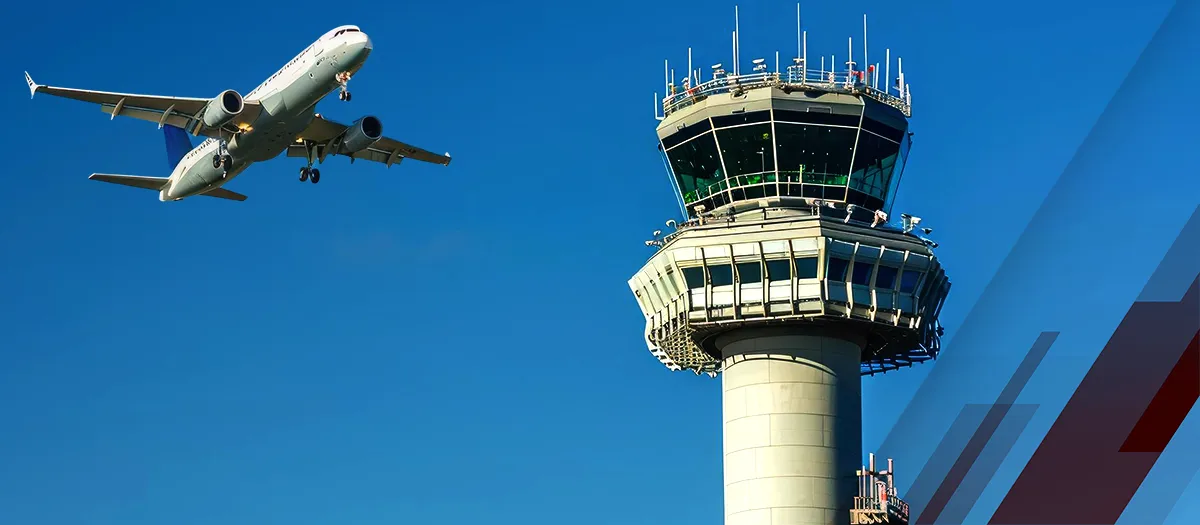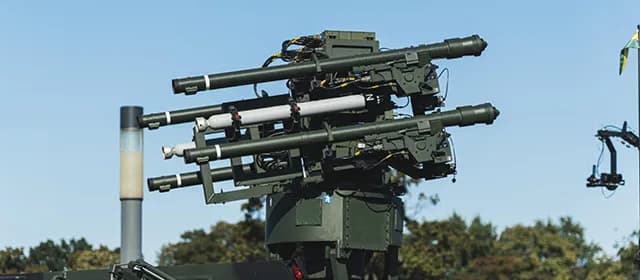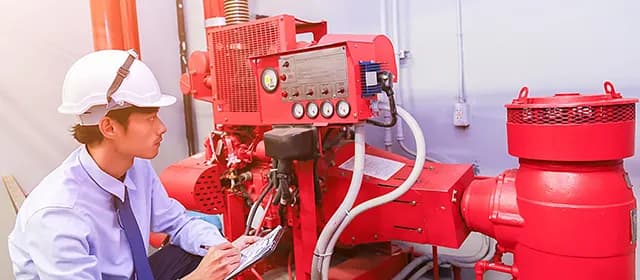The aviation industry is soaring to new heights with rising investments. In 2023, the aviation sector secured a massive valuation of $814.5 billion. This growth is set to fuel the growth of remote towers, a cost-efficient solution to air traffic control. As global air traffic continues to surge, the demand for innovative and efficient air traffic control systems has become more pressing than ever. This is where, remote towers emerge as a pivotal technology, offering enhanced flexibility and efficiency in managing the increasing complexity of air travel
According to Kings Research, the size of the worldwide remote towers market was estimated at USD 129.0 million in 2022 and is expected to increase at a compound annual growth rate (CAGR) of 33.89% from 2023 to USD 1,276.1 million by 2030. Let’s have a look at the top 10 remote tower companies based on their global presence and reach.
What are Remote Towers?
Remote towers are a modern approach to air traffic control that allows air traffic services to be provided from a remote location rather than from a traditional tower at the airport. Using advanced technology such as high-definition cameras, microphones, and sensors, remote towers provide air traffic controllers with a real-time, 360-degree view of the airport and its surroundings. This enables controllers to monitor and manage air traffic effectively.
Looking ahead, the future of remote towers holds great potential for further advancements. As technology continues to evolve, we can expect improvements in the capabilities of remote tower systems. Integration with artificial intelligence and machine learning algorithms can enhance automation, enabling more efficient and accurate detection of potential conflicts or hazards.
Top 10 Remote Towers Setting the Standard in 2024
1. Frequentis
With its wide range of offerings, including remote tower solutions for airports of all sizes, including large international airports and regional hubs, Frequentis is the leader in the field. Their main priorities are interoperability, scalability, and easy integration with current air traffic control systems. By collaborating with DFS Aviation Services to establish a Remote Tower Centre (RTC) in northern Germany, Frequentis has recently made notable progress.
2. Saab Group
With a track record in military air traffic control, Saab has developed a remote tower solution by utilizing this experience. Security, dependability, and weather adaptability are given top priority by their systems. Recently, Saab has enhanced its remote tower technology by integrating advanced artificial intelligence (AI) and machine learning algorithms, improving the system's capability to handle complex air traffic scenarios and enhancing decision-making processes for air traffic controllers.
3. Searidge Technologies
Searidge specializes in compact and portable remote tower solutions, making them ideal for smaller airports or temporary deployments. Recently, Searidge Technologies has launched a new generation of remote tower systems equipped with advanced video surveillance and analytics. These systems offer enhanced situational awareness and improved safety and efficiency for smaller airports, further solidifying Searidge's position as a leader in remote tower solutions for varied airport environments.
4. Indra Sistemas
Indra offers a comprehensive remote tower system called "STAR" catering to diverse airport needs. High-definition visuals, sophisticated automation, and interaction with their larger air traffic control systems are the main features of their products. The robustness and dependability of Indra's STAR remote tower system have been enhanced with the addition of next-generation digital communication technology.
5. Avinor
Avinor, the state-owned airport operator in Norway, has been a pioneer in the implementation of remote tower technology. They developed the Remote Tower Centre (RTC) located in Bodø, which is designed to manage air traffic control (ATC) for multiple airports from a single, centralized location. This innovative approach has positioned Avinor at the forefront of remote tower operations, particularly in handling the unique challenges of Norway's diverse and often harsh weather conditions.
6. Thales Group
Thales brings its vast experience in aerospace and defense technologies to the table with its "TopSky" remote tower solution. Their systems prioritize cybersecurity, redundancy, and integration with various sensors and communication networks. Recently, Thales has integrated cutting-edge AI technologies into its TopSky remote tower systems, enhancing predictive maintenance and operational efficiency.
7. Harris Corporation (Now part of L3Harris Technologies)
Harris, known for their communication and intelligence solutions, has entered the remote tower market with their "Excalibur" system. Their focus is on advanced automation, data security, and leveraging their existing infrastructure for efficient deployment. Recently, L3Harris has introduced enhanced cybersecurity features into their Excalibur system, ensuring that remote tower operations are safeguarded against potential cyber threats.
8. Indra Navia AS
Indra Navia, a prominent player in the air traffic management industry, is renowned for its cutting-edge remote tower solutions. As a joint venture between Indra Sistemas and Avinor, Indra Navia leverages the expertise of both companies to develop advanced remote tower technologies tailored to the specific needs of airports, particularly in challenging environments like Norway.
9. Lockheed Martin Corporation
Lockheed Martin, a giant in the aerospace and defense industry, offers the "SkyGuardian" remote tower solution. Their systems prioritize advanced sensor technology, artificial intelligence-powered automation, and cyber resilience. Recently, Lockheed Martin has integrated advanced machine learning algorithms into its SkyGuardian systems, enhancing the capability to predict and manage air traffic flow efficiently.
10. Raytheon Technologies Corporation
Raytheon Technologies, a prominent figure in the aerospace and defense industry, has made remarkable progress in the field of remote towers. Their "Pathfinder" remote tower solution is specifically designed to boost scalability, adaptability, and seamless integration with current air traffic management systems. Raytheon’s strategy involves leveraging cutting-edge technologies to optimize air traffic control operations, ensuring enhanced safety and operational efficiency.
Concluding Thoughts
We can anticipate additional improvements in the capabilities of remote tower systems as technology develops, including the incorporation of automation, artificial intelligence, and cutting-edge sensor technologies. Air traffic control will become more economical, more efficient, and safer as a result. Air traffic control services can be consolidated into remote tower centers, which could improve resource allocation, operational efficiency, and airport coordination. Remote towers have the power to completely change how we handle air traffic, resulting in a safer and more effective airspace system going ahead, with cooperation and innovative thinking.




